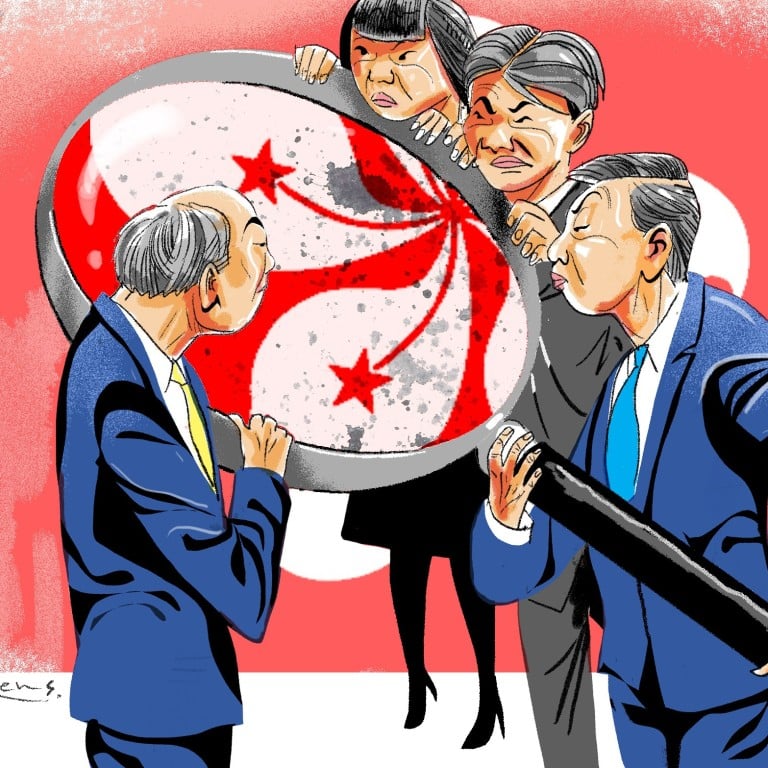
An independent inquiry is still the only way to end the protests and keep Hong Kong’s story from ending tragically
- A citizens’ commission of well-known members from across Hong Kong society can provide the needed independent inquiry
- There is no better option available, and the time left to prevent a deeper tragedy is running out fast
Were Mark Twain with us, he might say about citizen action to save Hong Kong what he said about the weather: everybody talks about it, but nobody does anything about it.
To be sure this, like many pithy observations, would be an exaggeration. Months ago, when the current crisis emerged, Hong Kong’s many able and experienced community leaders, as well as the Hong Kong government officials and their Beijing superiors who precipitated the crisis, seemed paralysed. Since then, efforts of various stripes have been made, if only haltingly. Now is the time for decisive action.
In addition, it could conclude with persuasive verdicts about when peaceful protests become “riots” and when, if ever, imprisonment and exclusion from public office may be appropriate for those engaged in non-violent civil disobedience.
A credible, vigorous investigation of some kind, it is generally agreed, would be the first meaningful response to the protesters’ demands since the government’s reluctant withdrawal of its ill-advised and disingenuous extradition proposal. Such a response might well stem the march towards civil war. So why has it not occurred?
Lessons can only be learned if inquiries are held into crisis
Governments everywhere, even democratic ones, whether in London, Washington, Tokyo or Taipei, fear genuinely independent investigations.
Moreover, whatever public trust might have originally supported any Hong Kong government proposal has long since dissipated. Only truly independent, prestigious action has any chance of popular credibility. That is why this week’s suggestion by a group of pro-government legislators that an official interdepartmental committee be set up is too little and too late.
“Heaven is wonderful. The problem is how to get there.” Yet it is possible, even now, if a significant number of the many outstanding community leaders who have thus far appeared indecisive and divided can either win approval for Li’s proposal, which has ample precedent in Hong Kong practice, or organise an innovative citizens’ commission. The latter should be composed of well-known participants in politics, business, the legal professions, education, journalism, entertainment and even sports. Representatives of students, plus past and present protesters should also be included, and so too should an authoritative police official.
Hong Kong people could set up own panel to probe police conduct
If an independent citizens’ commission seems necessary, it should be based on the joint efforts of the many strands of the community. Perhaps there should be no more than 24 commission members, with other influential figures serving as advisers.
An executive committee will have to be chosen, led by a respected former judge such as Li. He or she should preside over proceedings held in public, to permit transparency, with accompanying legal safeguards. The help of a team of skilled former prosecutors, criminal defence lawyers, civil litigators and professional investigators will be needed to help analyse the key issues and incidents in what otherwise might easily become an unmanageable and endless exercise.
This commission must not be toothless but, like a judicial inquiry, empowered by the government to achieve its goals. Adequate quarters will have to be provided, and funds allocated to support required staff and activities. Above all, the commission must have the power to summon witnesses, emails and other communications, documents and records, from the government as well as the private sector.
A prime subject of its inquiry must be the formal and informal instructions given by the Hong Kong government to the police and other relevant personnel. This will be a very sensitive, yet crucial, aspect. Claims of possible official privilege not to respond to certain inquiries will have to be confronted, with the commission and ultimately the public left to draw their own inferences from refusals to cooperate.
Beneath Xi Jinping’s vote of confidence in Carrie Lam lies a warning
No better alternatives than a judicial inquiry or an independent investigation commission are available, and further inaction will result in much greater tragedy than the community has already suffered.
Jerome A. Cohen, professor and faculty director of NYU Law School’s US-Asia Law Institute, is also adjunct senior fellow at the Council on Foreign Relations

